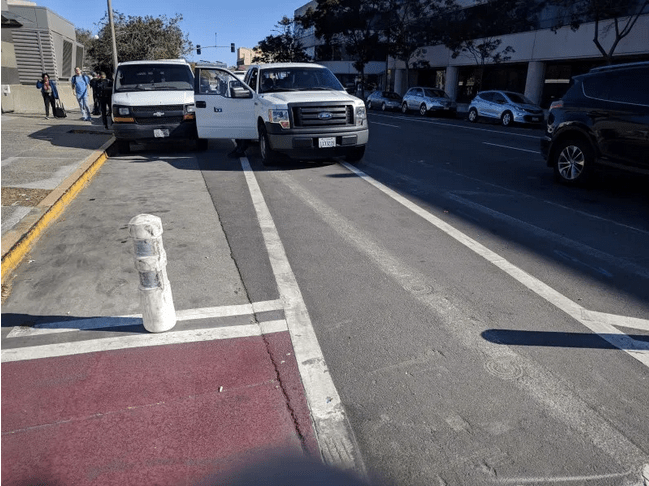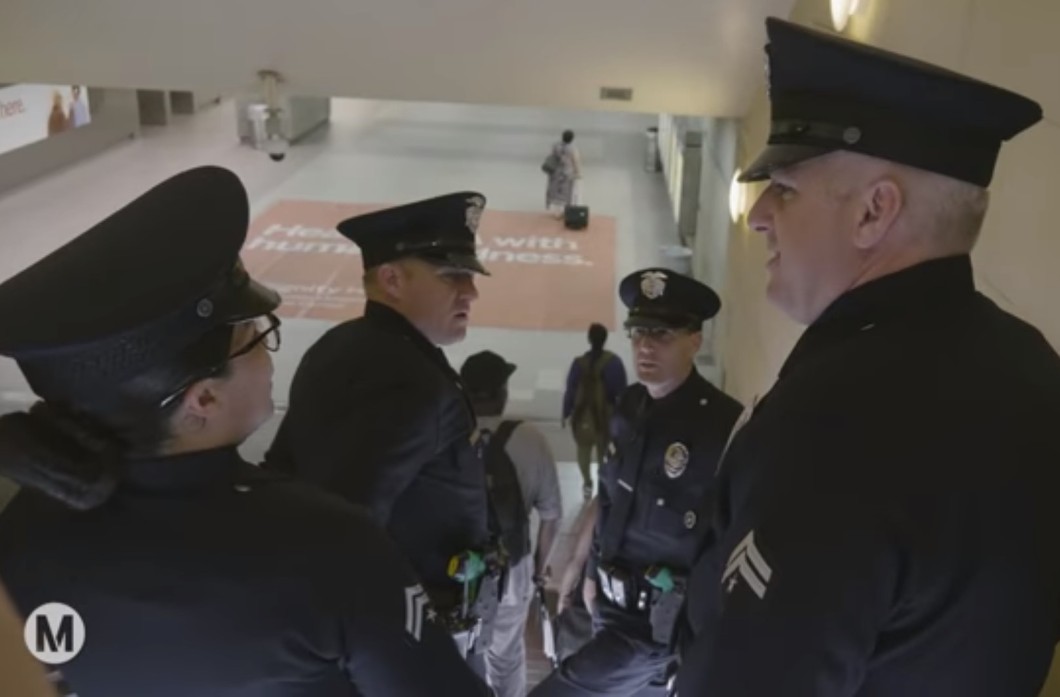Note: GJEL Accident Attorneys regularly sponsors coverage on Streetsblog San Francisco and Streetsblog California. Unless noted in the story, GJEL Accident Attorneys is not consulted for the content or editorial direction of the sponsored content.
Throughout San Francisco and elsewhere, volunteers on Friday downloaded the "Safe Lanes" app and collected data on one day's worth of motorists blocking bike lanes. Stephen Braitsch, who wrote the app, taunted the city with the results:
Hi @sfmta_muni, how's your day going today? pic.twitter.com/FaGEscjO9a
— Safe Lanes (@safebikelanes) October 5, 2019
There's certainly value in collecting such data. It quantifies what we all know: it's a sh*t show out there. Bike lanes, sidewalks, crosswalks are continually blocked, by delivery trucks, TNCs, and, often enough, the city's own employees.
If we're going to get any improvement we must change attitudes. And the only way to do that is to start punishing motorists who put vulnerable road users in danger, in a way that's going to sting.

I wish we could start confiscating cars (and more) and revoking licenses, but that would require state legislation that isn't going to happen (on the state level, we're moving towards more leniency for deadly motorist behaviors). But we have to start somewhere. The answer, I think, is to go after the employees of our region's transit agencies, such as BART and the SFMTA.
See the lead image? That's a BART truck parked in the entrance to a protected bike intersection next to Lake Merritt station last Thursday afternoon--right next to an open curb that was put there specifically for BART to use for loading. The image above: that's an SFMTA worker's car parked in the protected bike lane on Market Street in 2016, days after two cyclists were killed in separate incidents in San Francisco.
It's particularly grotesque to be put in danger by some of the very people we hire to help us move around safely--using cars we paid for to do it. Moreover, transit agencies can't claim to be nurturing a safety-culture if they let a significant portion of their people sh*t on safety infrastructure, inside or outside their stations and trackways.
But perhaps most importantly, it seems like a tangible goal for advocates. Contract negotiations with BART and Muni workers are done on the local level. We can reach out to boards, the members of which we help elect.
Union contracts should have a clause that says "blocking a bike lane or a crosswalk for anything that isn't a life-threatening emergency is a terminable offense and a forfeiture of your pension." The same clause should be added in contracts with managers. Even the director of a major transit agency should have a line in their contract that if they are caught parking in a bike lane or crosswalk with a city car--or their personal car--the contract is immediately voided.
I doubt anybody would actually get fired or lose their pensions because if that were in the contracts of transit workers and managers they would never block a bike lane or crosswalk. Well, maybe one would--once. Then it would depend on the city following through, terminating the employee, and making sure the message is out: no, this kind of behavior is not acceptable.
We have to start making it clear to individuals that endangering the life and limb of cyclists and pedestrians is not acceptable behavior. That has to start somewhere, so let's start with the very people whose job it is to help us get around safely.
Then maybe we can work on the police and fire departments.
For the record, I emailed BART Director Robert Raburn about the scofflaw BART worker (Lake Merritt Station is Raburn's district). So far, I haven't heard a reply. Perhaps he needs to hear from you too.






